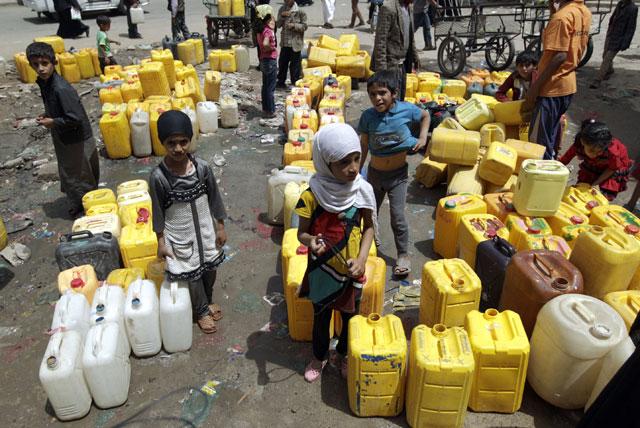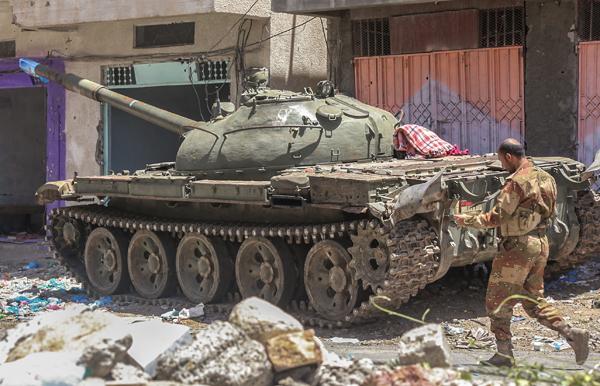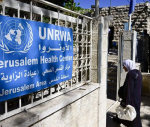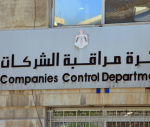You are here
Sporadic clashes hit Yemen ahead of midnight ceasefire
By AFP - Apr 10,2016 - Last updated at Apr 10,2016
MARIB, Yemen — Sporadic fighting gripped parts of Yemen on Sunday, hours before a UN-brokered ceasefire aimed at laying the groundwork for upcoming peace talks was due to take effect.
Chaos has ruled the Arabian Peninsular country since Iran-backed Houthi rebels overran the capital Sanaa in September 2014 and later advanced to other regions, prompting a Saudi-led military campaign in support of President Abed Rabbo Mansour Hadi from March last year.
It is hoped that the new ceasefire, due to start at midnight (2100 GMT), can be the cornerstone of a long-lasting peace deal negotiated between Yemen’s warring parties from April 18 in Kuwait.
Fighting raged on Sunday in regions surrounding Sanaa, while the rebel-held city itself, which has been regularly bombed by coalition warplanes, was quiet.
Rebels and their allies exchanged mortar and artillery fire with pro-Hadi forces in the Sarwah region of Marib province east of Sanaa, an AFP correspondent said.
Coalition aircraft also carried out air strikes to stop rebels seeking to retake a military base pro-government forces had recaptured in late 2015, military sources said.
A pro-Hadi commander in Sarwah, Lieutenant Colonel Abdullah Hasan, told AFP that loyalists will “observe the ceasefire as soon as it comes into effect at midnight”.
“But if the Houthis attack us, the situation will return to what it was” before the truce, he warned, pointing out that four of his men were killed by rebel mortar fire on Sunday.
Further north, coalition jets struck Houthi positions in Jawf province, according to the rebels.
Months of shuttle diplomacy
There were also clashes in Nihm northeast of Sanaa, witnesses said.
But residents of the capital spent a quiet night free of the sound of coalition aircraft, which had intensified raids in recent weeks, an AFP photographer said.
The planned truce was only agreed by the warring sides after months of shuttle diplomacy by UN envoy Ismail Ould Cheikh Ahmed.
The rebels and Hadi’s government said this week that they have submitted their observations to the UN mediator on the terms of the ceasefire, which will test their willingness to negotiate a peace deal at the Kuwait talks.
“We will go to the consultations [in Kuwait] to achieve peace,” Hadi reiterated on Saturday, insisting however that the rebels must commit to UN Security Council Resolution 2216 calling for their withdrawal from seized territory and disarmament.
Previous UN-sponsored negotiations failed to make any headway, and a ceasefire in December was repeatedly violated and eventually abandoned by the Saudi-led Arab coalition on January 2.
But analysts are more optimistic this time after mediation efforts have largely silenced guns along Yemen’s border with Saudi Arabia, and a Houthi delegation has also visited Riyadh for talks.
The Houthis and Saudi Arabia exchanged prisoners in March after unprecedented talks mediated by tribes along the frontier, where dozens of people have been killed in cross-border shelling.
The people are sceptical
“For the first time, the groups that can end major military operations, particularly the Saudis and the Houthis, appear to be more willing to do so,” said April Longley Alley, a Yemen specialist at the International Crisis Group.
But “even if major combat ends, the road to peace in Yemen will be long and difficult and internal conflict is likely to continue for some time”.
Yemenis appear to have learned not to get their hopes up after previous ceasefires collapsed.
“I do not expect the truce to succeed,” said Zayed Al Qaisi, a resident of Marib. “The Houthis have not honoured their commitments during the wars against the state since 2004.”
The Houthis fought six wars with the central government between 2004 and 2010 that killed thousands. Their main foe then, veteran president Ali Abdullah Saleh who was ousted in 2012, is now their ally.
“Even the government cannot force us to respect a ceasefire as we have not liberated our territories” seized by the rebels, said Qaisi, armed with a Kalashnikov rifle like most tribesmen in Yemen.
Others in Sanaa doubted that Riyadh would commit to the truce.
“Saudi Arabia is just procrastinating and being deceptive,” said 50-year-old Sanaa resident Ali Mohsen.
Umm Mohammed, waiting for her children outside a central Sanaa school, agreed that the truce is “a deception. We tried it unsuccessfully before”.
“I want a real end to the war,” she added.
According to the United Nations, more than 6,300 people have been killed in impoverished Yemen since March last year — around half of them civilians — and 30,000 have been wounded.
Related Articles
A new UN envoy was looking to kickstart peace talks in Yemen as battles raged Sunday between Iran-backed rebels and pro-government forces a month after the launch of Saudi-led air strikes.
MARIB, Yemen — Loyalists and rebels have clashed on several fronts in Yemen, officials said Tuesday, the second day of a UN-brokered ceasefi
SANAA — A fragile 48-hour ceasefire in Yemen ended on Monday after failing to stem violence across the country, with each side blaming the o

















